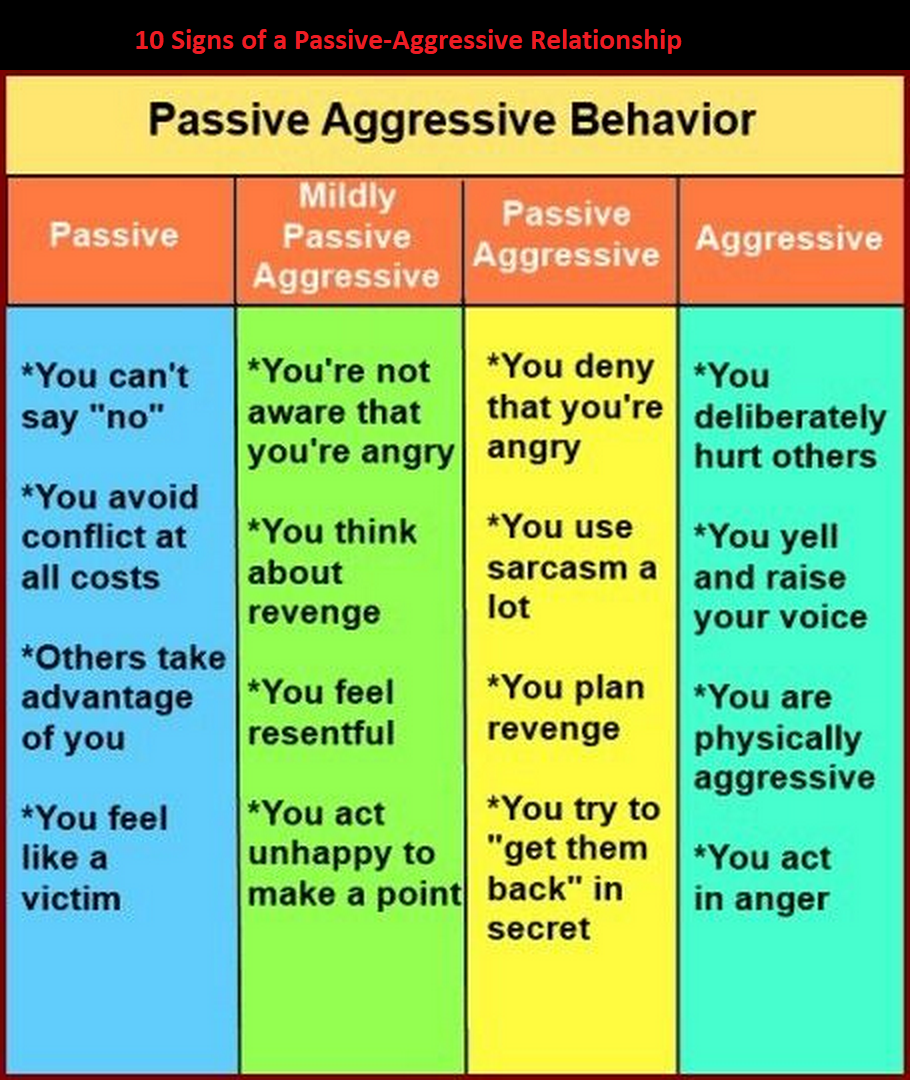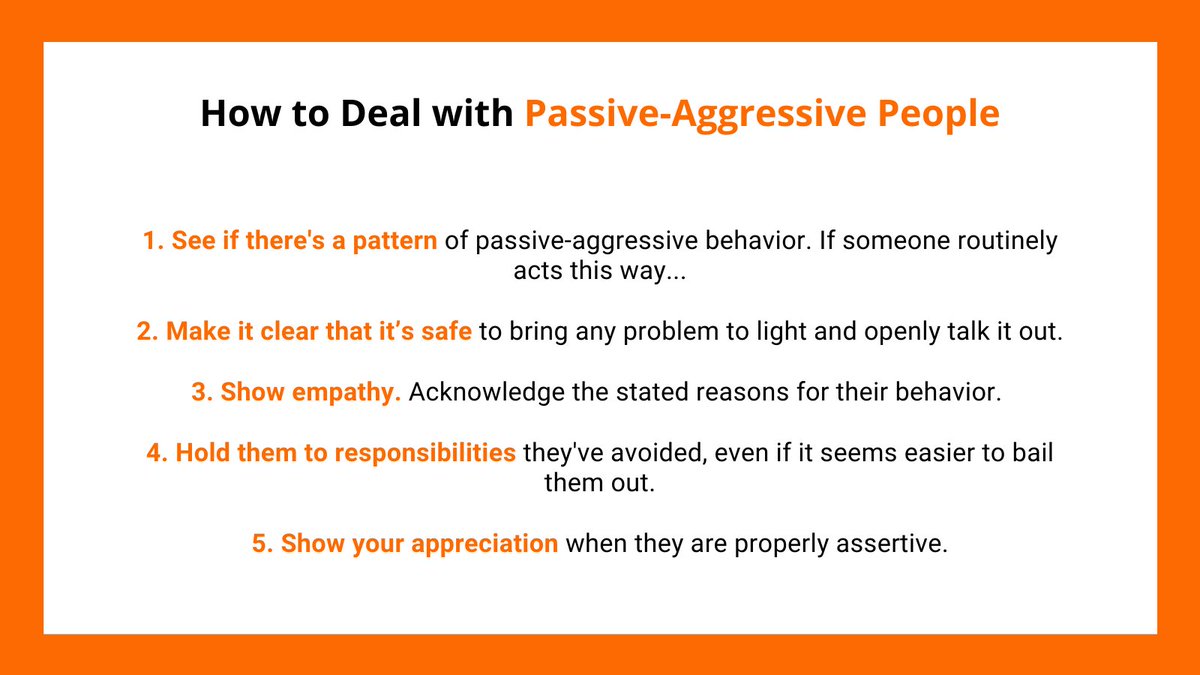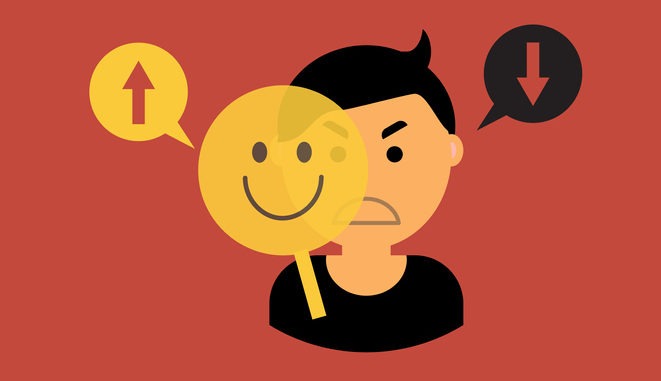You are walking on eggshells all the time. You never know what will set your partner off and trigger a full-blown argument. Or, you get an email from your coworker with the subject line “FYI” and suddenly you’re anxious about what you may have done wrong.
If any of this sounds familiar, then you have likely encountered passive-aggressive behavior before. But what is passive-aggressive behavior? What are some examples of it? How can you counter it when it’s directed at you? In this blog post, we will answer these questions and more!
Contents
Understanding Passive Aggressive

Passive-aggressive behavior is a type of indirect communication. It can be difficult to spot because it often masquerades as politeness or niceness. However, passive-aggressive individuals will use subtle tactics to get their needs met while avoiding confrontation. They may give you the silent treatment, make snide comments, or act procrastinated.
Types of Passive Aggressive Behaviors
- Passive resistance – This is when the person refuses to do something that you have asked them to do. They may claim that they don’t know how to do it, or that it’s too difficult.
- Sabotage – Sabotage is when a person deliberately does something to ruin your plans or goals. This could be anything from deliberately forgetting to do a task, to spreading rumors about you.
- Withdrawal – Withdrawal is when the person simply stops communicating with you. They may give you the silent treatment or refuse to answer your emails or texts.
- Accommodation – Accommodation is when the person goes out of their way to meet your needs, even if it’s not what they want. For example, they may agree to do something that they don’t want to do, or they may agree to change their plans at the last minute.
Common Passive-Aggressive Behaviors
There are several common passive-aggressive behaviors that you may encounter. These include:
- Intentional mistakes – This is when the person makes mistakes on purpose, often to frustrate or anger you. For example, they may forget to do a task or they may show up late to a meeting.
- Revenge – This is when the person does something bad to you in retaliation for something you’ve done. For example, they may spread rumors about you or they may refuse to help you with a project.
- The Silent Treatment – This is when a person refuses to speak to someone else and instead gives them the cold shoulder. The silent treatment can be very damaging to relationships, as it can make the person being ignored feel isolated and unsupported.
- Stonewalling – This is when a person shuts down and refuses to communicate with the person they are upset with. Stonewalling can be just as damaging as the silent treatment, as it prevents any kind of resolution or communication from taking place.
- Sarcasm and verbal irony – This is when the person makes snarky comments about you or your plans. For example, they may say “I’m so glad you’re finally doing something about that project” in a tone that implies that they don’t believe you’ll be successful.
Causes of Passive Aggressive Behaviors
There is no one answer for why someone might exhibit passive-aggressive behavior. However, there are some common causes:
- Fear of confrontation – The person may be afraid to confront you directly about their needs or wants. This could be because they are afraid of your reaction, or because they don’t want to upset you.
- Resentment – The person may feel resentment towards you for something that you have done. This could be a real or perceived slight, such as taking credit for their work, or not listening to them.
- Low self-esteem – The person may feel like they are not good enough for you and therefore resort to passive-aggressive tactics to get your attention or approval.
Personality Types Prone to Passive Aggressive
Certain personality types are more prone to passive-aggressive behavior. These include:
- The perfectionist – This person is always striving for excellence and is never satisfied with their work. They may feel like they can never do enough, which can lead to feelings of resentment towards others.
- The control freak – This person likes to be in charge and has a rigid view of the world. They may feel like they need to be in control of everything, including their relationships, which can lead to passive-aggressive behaviors.
- The victim – This person is always the victim, whether it’s at work, at home, or in their relationships. They may feel like they are always being taken advantage of, which can lead to resentment and passive-aggressive behavior.
Risk Factors For Passive Aggressive Behaviors
Some risk factors can increase the chances of someone exhibiting passive-aggressive behavior:
- Trauma – If a person has experienced trauma or abuse in the past, they may be more likely to exhibit passive-aggressive behavior.
- Low self-esteem – If a person doesn’t feel good about themselves, they may be more likely to resort to passive-aggressive tactics to get what they want.
- Poor communication skills – If a person doesn’t know how to express their needs and wants directly, they may resort to passive-aggressive behavior.
Identifying Passive Aggressive Behavior

Passive-aggressive behavior can be difficult to identify, but some clues can help. Here are some of the most common signs:
At Campus
- The person is always late for class or turns in assignments late.
- They avoid eye contact and are quick to downplay their accomplishments.
- They exhibit a lack of initiative and seem disinterested in-class discussion or group work.
At Workplace
- The person avoids taking on new tasks or responsibilities.
- They are constantly putting off deadlines or exhibiting chronic procrastination.
- They are passive-aggressive in their communication, often using sarcasm or evasiveness.
In Relationship
The person is never confrontational and always agrees with what you have to say. However, they consistently fail to follow through on their commitments. They make subtle jabs at you or use indirect language to communicate their displeasure.
In Social Settings
The person is always quick to offer an excuse or find a way to avoid attending social engagements.
- They are often sullen and uninterested in the conversation.
- They make passive-aggressive comments about others or spread gossip.
Encountering Passive Aggressive Behaviour

If you encounter someone who is exhibiting passive-aggressive behavior, there are a few things that you can do:
- Stay calm – It’s important to stay calm and avoid getting into a confrontation. This will only make the person more defensive and they may become even more aggressive.
- Express your needs – You need to express your needs directly to the person. This will help them to understand what it is that you want and they may be less likely to resort to passive-aggressive tactics.
- Don’t take the bait – The person may try to provoke you into a confrontation, but don’t take the bait. If you do, it will only lead to an argument and nothing will be resolved.
How Does Passive Aggressive Affect Others
Passive-aggressive behavior can have several negative effects on the people around the person. These can include:
- Anxiety – Passive-aggressive behavior can cause a lot of anxiety, especially if you’re always worried about what the person is going to do next.
- Frustration – When you’re constantly dealing with someone who is being passive-aggressive, it can be very frustrating. You may feel like you’re walking on eggshells around them, and you never know what they’re going to do next.
- Depression – People who are constantly exposed to passive-aggressive behavior may become depressed. This is because they feel like they can’t do anything to fix the situation and they may feel like they’re being taken advantage of.
- Anger – When you’re constantly dealing with someone’s passive-aggressive behavior, it can often lead to anger. You may feel like the person is purposely trying to annoy or frustrate you, and this can cause a lot of resentment.
- Confusion – Passive-aggressive behavior can often be confusing, especially if you don’t know what the person is trying to accomplish. You may feel like you’re walking on eggshells around them and you never know what they’re going to do next.
How Does Passive Aggressive Behavior Affect the Person
Passive-aggressive behavior can also have several negative effects on the person. These can include:
- Low self-esteem – People who are constantly engaging in passive-aggressive behavior may have low self-esteem. This is because they may believe that they’re not capable of communicating effectively and they may feel like they’re always causing conflict.
- Anger issues – People who are constantly engaging in passive-aggressive behavior may also have anger issues. This is because the person may not be able to express their anger healthily, and they may instead act out passive-aggressively.
- Stress – Passive-aggressive behavior can be very stressful, both for the person who is engaging in it and for the people around them. This is because it can be difficult to deal with someone who is always acting out and it can be hard to predict what they’re going to do next.
Why Passive Aggressive Behavior Is Dangerous
Passive-aggressive behavior can harm those around the person. It can cause tension and conflict and can make it difficult to achieve goals or work together effectively.
- Confusion – The person may be unclear about what it is that the person wants or needs. This can lead to frustration and confusion.
- Resentment – The person may feel resentment towards the person who is exhibiting passive-aggressive behavior. This can cause tension and conflict in the relationship.
- Depression – The person may feel depressed or anxious as a result of passive-aggressive behavior.
- Isolation – The person may feel isolated and alone as a result of passive-aggressive behavior.
- Anger – The person may feel angry and frustrated as a result of passive-aggressive behavior. This can lead to arguments and fights.
Countering Passive-aggressive Behavior

If you are dealing with someone who is exhibiting passive-aggressive behavior, there are a few things that you can do to counter it:
- Set boundaries – If the person is engaging in passive-aggressive behavior, set clear boundaries for what is acceptable and unacceptable. This will help to make it clear what you expect from them.
- Communicate directly – If the person is not communicating directly with you, try to encourage them to do so. This will help to resolve any issues that may be causing resentment or anger.
- Don’t take things personally – Remember that the person’s behavior is not about you, it’s about them. Don’t let their behavior affect your self-esteem or mood.
- Seek professional help – If the behavior is proving to be too difficult to manage on your own, seek professional help. A therapist can provide guidance and support in dealing with passive-aggressive behavior.
Self-help Tips
If you are dealing with passive-aggressive behavior, here are some self-help tips that may be helpful:
- Identify your triggers – Identify the things that trigger your passive-aggressive behavior and try to avoid them.
- Express your feelings – Express your feelings directly to the person. This will help them to understand what you are feeling.
- Stay positive – Try to stay upbeat, even if the person is being difficult.
- Talk to a friend – Talk to a friend or family member about what you are going through. They may be able to offer some support.
- Take a break – If the person is causing you too much stress, take a break from the relationship.
Self-help Tools
If you are dealing with passive-aggressive behavior, here are some self-help tools that may be helpful:
- Journal – Writing down your thoughts and feelings can help to clarify them and may help resolve the issue.
- Therapy – Therapy can provide you with support and guidance in resolving the issue.
- Meditation – Meditation can help to calm and focus the mind, which may help resolve the issue.
Hearing From Experts
We asked some experts about passive-aggressive behavior and here’s what they had to say:
“Passive-aggressive behavior is a way of communicating that is indirect and often masked by behaviors that appear to be polite or accommodating. It can involve things such as procrastination, sulking, sarcasm, and underhanded compliments. Passive-aggressive people often feel powerless and resentful, and use these behaviors to get what they want or to hurt the person they are upset with.”
-Dr. Crystal I. Lee, Psychologist
“Passive-aggressive People often feel unheard and unseen. They may see themselves as victims in their relationships or at work. Their goal is usually not to be aggressive or hurtful, but to get their needs met in a way that is covert and indirect. Because passive-aggressive behavior can be confusing and frustrating, it’s important to understand what’s driving it.”
-Mandy Len Catron, Ph.D., Author of “How To Fall In Love With Anyone”
Case Study
We spoke to one person who had experience with passive-aggressive behavior. Here’s what they had to say:
“I dated someone for a while who was very passive-aggressive. I would do something that he didn’t like and he would respond by doing something small and indirect that would get under my skin. For example, he would start washing the dishes as soon as I got home from work, even if they weren’t dirty. It was his way of getting back at me for something I had done. I found it very frustrating because I never knew what he was going to do or how he was going to react.”
-Kelly, 29
Resources
If you would like more information on passive-aggressive behavior, here are some resources that may be helpful:
Books
- How To Fall In Love With Anyone: A Memoir of a Scientific Discovery, by Mandy Len Catron, Ph.D.
- The Angry Therapist’s Guide to Overcoming Passive-Aggression: How to Respond Effectively to Hidden Anger, by Jeffrey Bernstein, Ph.D.
Conclusion
If you are experiencing passive-aggressive behavior, it is important to understand what is driving it. Talk to the person directly about what is going on and set boundaries for how you want to be treated. Don’t take things personally and seek professional help if the behavior is proving to be too difficult to manage on your own. A therapist can provide guidance and support in dealing with passive-aggressive behavior.
A Word From Therapy Mantra
Your mental health — Your psychological, emotional, and social well-being — has an impact on every aspect of your life. Positive mental health essentially allows you to effectively deal with life’s everyday challenges.
At TherapyMantra, we have a team of therapists who provide affordable online therapy to assist you with issues such as depression, anxiety, stress, workplace Issues, addiction, relationship, OCD, LGBTQ, and PTSD. You can book a free therapy or download our free Android or iOS app.


